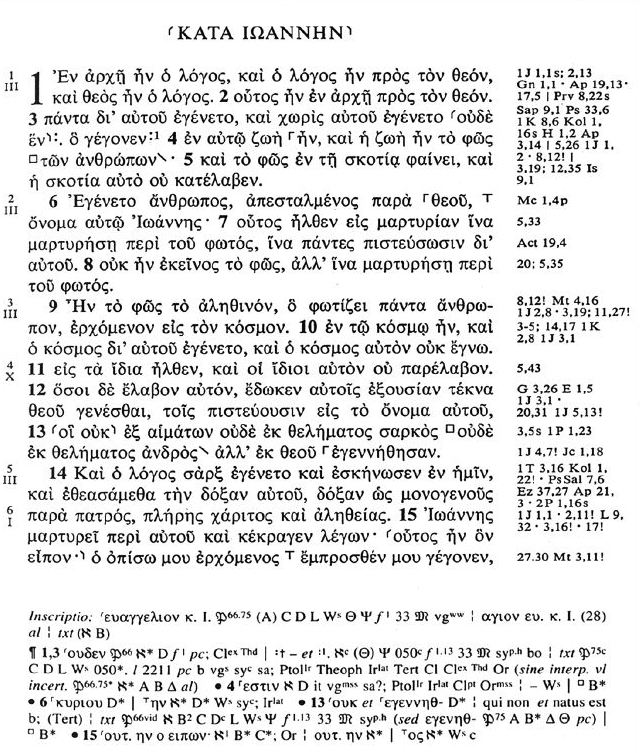- Mar 9, 2019
- 839
- 120
- 63
- Country
- United States
- Faith
- Baptist
- Marital Status
- Private
You are looking at the 'final product' where an apparatus is provided. What I don't see you presenting are ...That is, this:

1. The names of those who established the central rules of Textual Criticism; or
2. The theological views (pertaining to the Scriptures) of those who created those rules in the 18th and 19th centuries.
Keep in mind, even though Eclecticism, Stemmatics, and Copy text editing were practiced by men such as Erasmus, the rules of Textual Criticism used today were NOT in existence until 150 years after the days of Erasmus. (This means that there is absolutely no evidence to support the idea that Erasmus used any of the same rules as modern Textual Criticis.)
The 1689 London Baptist Confession, Article 1, Paragraph 8 reads as follows:
"The Old Testament in Hebrew (which was the native language of the people of God of old),14 and the New Testament in Greek (which at the time of the writing of it was most generally known to the nations), being immediately inspired by God, and by His singular care and providence kept pure in all ages, are therefore authentic; so as in all controversies of religion, the church is finally to appeal to them.15 But because these original tongues are not known to all the people of God, who have a right unto, and interest in the Scriptures, and are commanded in the fear of God to read,16 and search them,17therefore they are to be translated into the vulgar language of every nation unto which they come,18 that the Word of God dwelling plentifully in all, they may worship Him in an acceptable manner, and through patience and comfort of the Scriptures may have hope."
Can you provide evidence that the people who established the rules of Textual Criticism in the 18th and 19th centuries held to the beliefs presented in the Confession above?
Upvote
0
